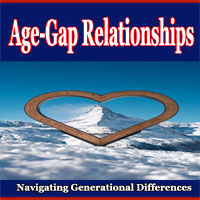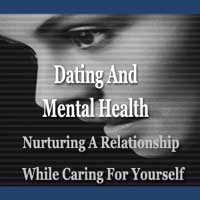



Our journey through life is intricately woven with the threads of our past, and one of the most significant aspects of our early years is how they influence our adult relationships. Emotional connections, formed or hindered during childhood, play a pivotal role in shaping the dynamics of our adult interactions, the bonds we forge, and our overall emotional well-being.
Understanding Emotional Connections In Childhood
During childhood, our emotional landscape is in its formative stages. It's a time when we learn about trust, attachment, vulnerability, and empathy. The emotional connections we establish during this period can have a profound impact on how we navigate the world as adults.
The Parent-Child Bond: The Root Of All Connections
The parent-child bond is often considered the bedrock of emotional connections. It serves as a template for future relationships, shaping our capacity to trust, love, and be vulnerable with others. When children grow up in a loving, supportive environment, they tend to develop secure attachment styles, which are associated with healthier adult relationships.
Attachment Styles And Their Influence On Adult Relationships
Our attachment style, developed in childhood, has a lasting effect on our emotional connections in adulthood. There are typically four main attachment styles:
Secure Attachment: Individuals with a secure attachment style tend to be comfortable with both intimacy and independence in their adult relationships. They can form emotional connections characterized by trust and a healthy balance of togetherness and separateness.
Anxious-Preoccupied Attachment: Those with this style often crave intense emotional connections but may struggle with trust and fear abandonment. They can be overly dependent on their partners, which may lead to issues in adult relationships.
Dismissive-Avoidant Attachment: Individuals with this style may maintain emotional independence and may avoid vulnerability in their adult relationships. They may struggle to create deep emotional connections due to their fear of being hurt.
Fearful-Avoidant (Disorganized) Attachment: This attachment style is characterized by a mixture of anxious and dismissive tendencies. Those with this style may have complex emotional connections and often face challenges in their adult relationships.
Impact Of Childhood Trauma
Childhood trauma, whether it's emotional, physical, or psychological, can have a profound impact on adult relationships. Traumatic experiences can leave deep emotional scars, making it difficult for individuals to trust, open up, or form healthy emotional connections. Therapy and support are often necessary to heal and develop healthier adult relationships.
Nurturing Positive Emotional Connections
Recognizing the role of childhood experiences in shaping adult relationships is the first step toward positive change. To nurture and strengthen emotional connections in adulthood, consider the following:
Self-Awareness: Reflect on your own attachment style and how it may be impacting your adult relationships. Self-awareness is a crucial first step in making positive changes.
Therapy And Counseling: Seek professional help if you've experienced childhood trauma or face difficulties in forming emotional connections. Therapy can provide tools to heal and develop healthier relationship patterns.
Communication Skills: Improve your ability to communicate openly and honestly with your partner. Effective communication is essential for fostering emotional connections.
Empathy And Understanding: Practice empathy and understanding toward your partner's needs and experiences. Being present and supportive can strengthen emotional bonds.
Boundaries: Establish healthy boundaries in your relationships to maintain a balance between independence and intimacy.
Our childhood experiences significantly impact the emotional connections we form in adulthood. These connections, whether secure or insecure, have a lasting influence on our adult relationships. Acknowledging this influence and taking steps to heal and nurture these connections can lead to more fulfilling, healthier, and deeper emotional connections in our lives. Remember, it's never too late to work on creating more positive and nurturing adult relationships based on a foundation of understanding the impact of childhood experiences.
Embracing Fresh Beginnings
 Reinventing Oneself
Reinventing Oneself
Starting over is an opportunity for reinvention. It allows us to shed old identities and embrace new ones. While it can be intimidating to break away from the familiar, it's essential to remember that reinventing oneself is a testament to resilience and adaptability. It's a chance to redefine who we are and what we stand for.
Setting New Goals
Starting over also invites us to set fresh goals and aspirations. It's an excellent time to reflect on what we truly want in life, what makes us happy, and what gives our lives purpose. By establishing new objectives, we can reignite our motivation and work towards a more fulfilling and meaningful future.
Learning From Past Experiences
A crucial aspect of starting over is learning from past experiences. Mistakes and setbacks are part of everyone's journey. Instead of dwelling on them, use them as valuable lessons that guide your new beginning. By acknowledging your past, you can make more informed choices and avoid repeating previous errors.
Building Resilience
Starting over requires a great deal of resilience. The process can be challenging, as we often encounter obstacles, uncertainties, and fear. Building resilience means developing the inner strength to face these challenges with determination and adaptability. It's about bouncing back from adversity and using it as a stepping stone towards personal growth.
Embracing Change
Change is a constant in life, and starting over is a testament to our ability to adapt to it. While change can be unsettling, it's also an opportunity for growth. Embrace it with an open heart and a willingness to explore the unknown. Change, after all, is the catalyst for new beginnings.


Navigating The Complex Connection
 The Intersection Of Dating And Mental Health
The Intersection Of Dating And Mental Health
Mental health plays a significant role in dating, influencing how individuals perceive themselves, interact with others, and handle emotional challenges. For those dealing with conditions like anxiety, depression, or low self-esteem, the dating landscape can become a battleground of self-doubt and insecurity. The fear of rejection, the pressure to make a good impression, and the vulnerability of opening up to someone new can intensify these feelings.
The Importance Of Self-Awareness
One of the first steps in nurturing a healthy relationship while prioritizing your mental health is self-awareness. Understanding your own mental health, triggers, and coping mechanisms is crucial. Being in tune with your emotions and recognizing when you might need a break or extra support can make all the difference. If you're aware of certain situations that exacerbate your mental health symptoms, share these with your partner to create a supportive environment.
Effective Communication Skills
Open and honest communication is a cornerstone of any successful relationship, but it's even more critical when mental health is a factor. Discussing your feelings and challenges with your partner can foster understanding and empathy. Moreover, it allows them to be a source of support when needed. It's essential to remember that the right person will be willing to listen and provide a shoulder to lean on.
Navigating The Modern Landscape Of Romance
 3. Diverse Dating Pool
3. Diverse Dating Pool
The digital world has shattered geographical boundaries, allowing people to connect with individuals from different walks of life. This has led to greater diversity in the dating pool, enabling people to explore relationships with partners they might never have encountered otherwise. Cultural, ethnic, and geographic differences are now bridges rather than barriers to love.
4. Finding Love From Home
The accessibility of potential partners and the ability to screen matches has transformed the dating experience. Users can review profiles, read about interests and values, and engage in meaningful conversations before deciding to meet in person. The result is a more informed, selective, and efficient dating process.
5. Online Relationship Building
Couples in the digital world often find that they can build strong connections even before meeting in person. Through thoughtful messages, video chats, and shared experiences, individuals can develop deep emotional bonds, creating a strong foundation for their relationship.
6. Shifting Dynamics In Dating
Traditional gender roles and expectations in dating and relationships have evolved. The digital world has given rise to more egalitarian dynamics in partnerships.
A New Age Of Connections
 2. Accessibility And Convenience
2. Accessibility And Convenience
One of the most significant advantages of online interactions is their accessibility and convenience. From the comfort of your home or wherever you have an internet connection, you can connect with people from around the globe, overcoming the constraints of physical distances.
3. Varied Platforms For Different Needs
The digital landscape provides a myriad of platforms tailored to different needs. Whether you're looking for love, friendship, professional networking, or shared interests, there's an online platform for you. These platforms cater to a wide range of preferences and make it easier to find like-minded individuals.
4. Building Meaningful Connections
Meeting people online isn't solely about quantity; it's about quality. In the digital realm, individuals have the opportunity to build meaningful connections based on shared values, interests, and goals. These connections often lead to deeper and more enduring relationships.
 At its core, a meaningful relationship is built on a strong foundation of trust and understanding. It's the type of connection where you can be your authentic self without fear of judgment or rejection. In such relationships, you can share your thoughts, dreams, and vulnerabilities without hesitation. This mutual trust creates a safe space for emotional intimacy to flourish, allowing you to navigate life's ups and downs together.
At its core, a meaningful relationship is built on a strong foundation of trust and understanding. It's the type of connection where you can be your authentic self without fear of judgment or rejection. In such relationships, you can share your thoughts, dreams, and vulnerabilities without hesitation. This mutual trust creates a safe space for emotional intimacy to flourish, allowing you to navigate life's ups and downs together.
Communication plays a pivotal role in the development and sustenance of meaningful relationships. Open and honest communication fosters empathy, leading to a better comprehension of each other's feelings and perspectives. It's in these conversations that you discover the nuances of your partner's personality and their unique way of seeing the world. This understanding fosters a profound sense of connection, as you feel seen and heard in your relationship.
Meaningful relationships are not just about emotional intimacy; they also thrive on shared experiences and interests. These connections are often built on a foundation of common values, interests, and life goals. Whether it's enjoying a hobby together, pursuing a shared passion, or working towards a common objective, these shared experiences create a sense of unity and togetherness that strengthens the bond.
Empathy and support are the cornerstones of meaningful relationships. In times of joy, your partner celebrates your successes wholeheartedly. In moments of despair, they offer a shoulder to lean on and a listening ear. This emotional support system is a crucial aspect of meaningful relationships, as it reinforces the idea that you are not alone in facing life's challenges.
One distinctive aspect of a meaningful relationship is the ability to weather the storms of life together. Meaningful relationships endure hardship and emerge stronger because of it. Facing adversity as a team enhances the depth of your connection, as it highlights your resilience and your unwavering commitment to each other.





